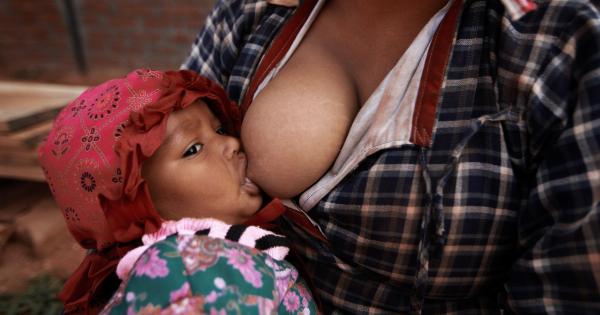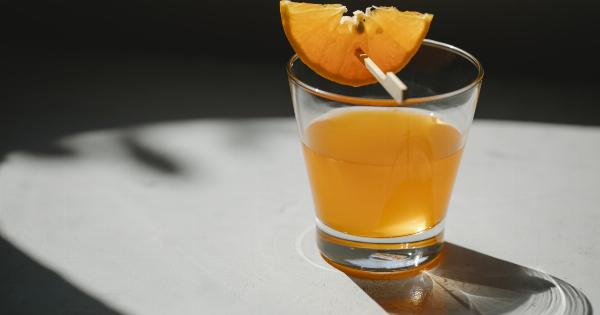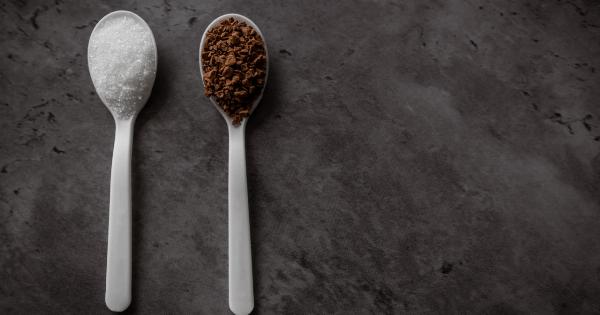Breastfeeding is a beautiful and natural process that helps nourish and strengthen the bond between a mother and her child. As a breastfeeding mother, it is important to maintain a healthy diet that supports the production of high-quality breast milk.
While there are general guidelines for a healthy breastfeeding diet, there are also certain foods that should be avoided. In this article, we will discuss what not to eat while breastfeeding to ensure the well-being of both mother and baby.
1. Caffeine
Although you don’t have to completely eliminate caffeine from your diet, it is advisable to limit your intake while breastfeeding. Caffeine is a stimulant found in coffee, tea, and many soft drinks.
Excessive consumption of caffeine can cause irritability, sleep disturbances, and even affect your baby’s sleep patterns.
2. Alcohol
Alcohol consumption should be strictly avoided while breastfeeding. Alcohol easily passes into breast milk and can negatively impact your baby’s development and sleep patterns.
It is recommended to wait for at least two to three hours after having an alcoholic beverage before breastfeeding to ensure the alcohol has been metabolized.
3. Certain Fish
While fish is generally a great source of omega-3 fatty acids and beneficial for nursing mothers, certain types of fish may contain high levels of mercury. Mercury can be harmful to a baby’s developing nervous system.
Avoid eating shark, swordfish, king mackerel, and tilefish, as they tend to have higher mercury content. Instead, opt for low-mercury fish like salmon or trout.
4. Spicy Foods
Spicy foods can sometimes cause digestive issues for breastfed babies. Some babies may develop gas, colic, or fussiness when their mothers consume spicy foods.
If you notice your baby reacting negatively to spicy foods, it may be wise to limit or avoid them until their digestive system matures.
5. Citrus Fruits
Citrus fruits such as oranges, lemons, and grapefruits are known to be highly acidic. While they are generally safe to consume in moderation, some babies may be sensitive to the acidic content and may experience diaper rash or fussiness.
If your baby shows any signs of discomfort after you consume citrus fruits, it may be best to limit your intake or avoid them altogether.
6. Peanuts and Tree Nuts
If you have a family history of nut allergies or your baby is at high risk for developing allergies, it is advisable to avoid consuming peanuts and tree nuts while breastfeeding.
Although the risk of developing an allergy through breast milk is low, it is better to err on the side of caution, especially if there is a known family history.
7. High-Mercury Seafood
In addition to certain fish, other types of seafood such as shellfish, raw fish, and refrigerated smoked seafood should be limited or avoided due to their potential contamination with harmful bacteria or parasites.
These can lead to illnesses such as food poisoning, which can be detrimental to both mother and baby.
8. Processed and Fast Foods
Processed foods and fast foods tend to be high in unhealthy fats, sodium, and artificial additives. They lack essential nutrients needed for both mother and baby’s well-being.
Opt for whole, unprocessed foods that are rich in vitamins, minerals, and antioxidants to ensure you and your baby receive the nutrients required for optimal health.
9. Gas-Inducing Foods
Some foods have a tendency to produce gas, which can lead to discomfort and colic in breastfed babies. Foods such as beans, lentils, broccoli, cabbage, onions, and carbonated drinks are known to cause gas.
While these foods provide many health benefits, it’s a good idea to consume them in moderation or avoid them if your baby is particularly sensitive.
10. Allergenic Foods
Common allergenic foods such as cow’s milk, eggs, wheat, soy, and shellfish have the potential to cause allergies in some breastfed babies.
If you notice any signs of an allergic reaction like hives, rash, or difficulty breathing in your baby after consuming these foods, consult with a healthcare professional and consider eliminating them from your diet.































